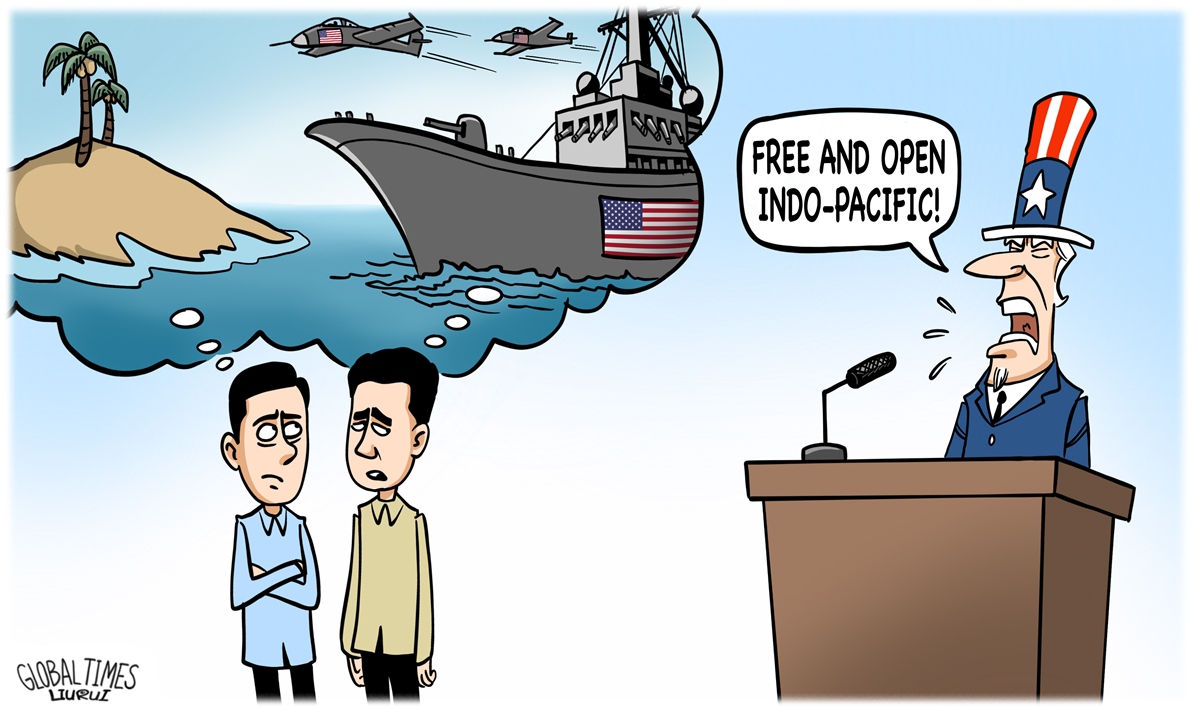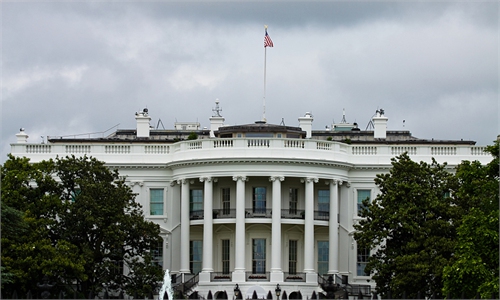Washington should not dump ‘Cold War garbage’ in the Pacific Ocean: Global Times editorial

Indo-Pacific Illustration: Liu Rui/GT
The US and the Philippines kicked off their 12-day "shoulder-to-shoulder" joint exercises across the Luzon island on Monday, involving nearly 9,000 troops. This year's exercise is "one of the largest-ever iterations," the US Embassy in the Philippines said in a news release. In this regard, the US side is particularly excited. Maj. Gen. Jay Bargeron, 3rd Marine Division Commanding General, said the drills will "strengthen our response capabilities and readiness for real-world challenges." Western media said the exercises will "show off the two countries' strong defense ties in the face of growing Chinese assertiveness."
But it was also noted that the Philippine side only emphasized the bilateral security relationship with the US before the exercise started. It is in stark contrast to the US' high-profile manner.
This joint military exercise, which was announced long ago by the US and dubbed the "largest-ever" in history, has greater political significance than a military one. Before the pandemic, about 8,000 soldiers participated in the exercise in 2018. The figure was 7,500 in 2019. The number this year, 9,000, is thus not a breakthrough. It is however the first time in many years that the number of US military personnel (5,100) exceeds that of the Philippines (3,800). This mirrors US eagerness to stage a "big show" to make itself look good.
The reason behind it is easy to understand. The US attempts to realize what Kurt Campbell, the US National Security Council's coordinator for Indo-Pacific affairs said: The US will keep its focus on the Indo-Pacific despite the Ukraine crisis. Yet as the situation in Ukraine has been stuck in a stalemate and the energy of the US is inevitably distracted by it, Washington can realize its so-called "focus" on the Indo-Pacific region through provoking controversial topics and launching joint military exercises, moves that are provocative at relative low cost. Washington is so good at such moves to fan the flame.
From the "Asia-Pacific rebalancing strategy" under the Obama administration, to the "Indo-Pacific strategy" under the Trump and Biden administrations, Southeast Asia has been seen as a strategic pivot for the US to play geopolitics. But Washington simply does not understand the logic of development here. ASEAN countries have a larger population than the EU, but most of them have a weak economic base and face urgent development tasks, while some of them have not yet escaped from the turmoil. Their thirst for peace and development is overwhelming, which is highly compatible with China's attitude, but the opposite of the path the US takes.
On the same day that the US-Philippine military exercises began, China announced that at the invitation of Chinese State Councilor and Foreign Minister Wang Yi, the foreign ministers of the Philippines, Indonesia, Thailand and Myanmar will each visit China between March 31 and April 3. Meanwhile, the US-ASEAN special summit, scheduled for March 28 in Washington, has been postponed indefinitely, with the White House unilaterally announcing the date and then changing the date proposed by ASEAN leaders again and again. It is not difficult to see who respects ASEAN countries, and who is using Southeast Asian countries as pawns.
Since Ukraine crisis broke out, there are some voices of reflection in the Philippines. They argue that the country needs to avoid the fate of Ukraine, reject Washington's warmongering, and avoid at all costs becoming a "proxy" or a pawn of any major power to encircle another one. The recent situation in Ukraine is a warning to the rest of the world that the security of one country cannot be guaranteed at the expense of undermining security of others, and that regional security cannot be guaranteed by strengthening or even expanding military blocs. Asian countries are not willing to repeat the troubles Washington made in Europe.
Peace and stability in Asia are hard-earned and cannot be sabotaged by extraterritorial countries. Washington wants to forcefully peddle its old security concept in Asia, dumping "Cold War garbage" into the Pacific Ocean, even trying to create an "Indo-Pacific version of NATO." In the end, its dream will be crushed by the hard rocks of the Pacific Ocean.

